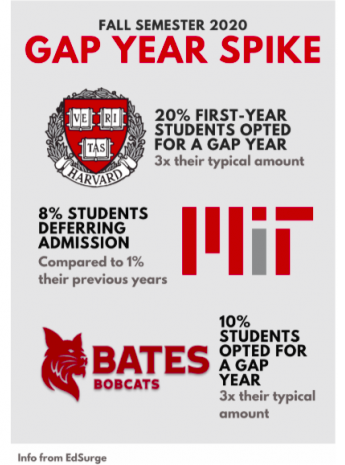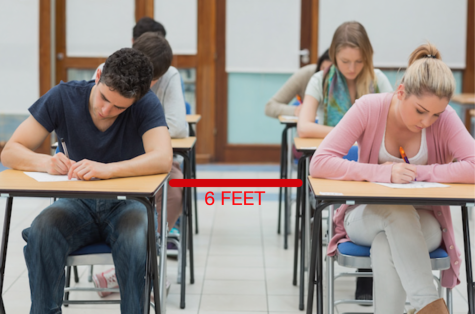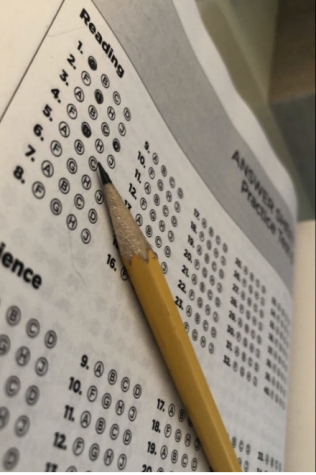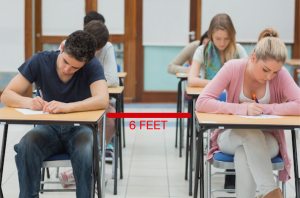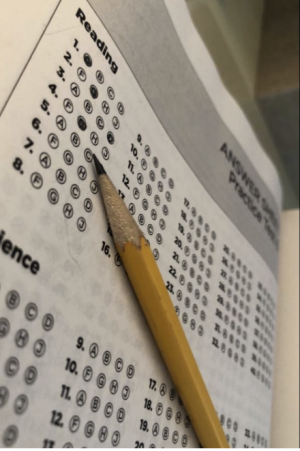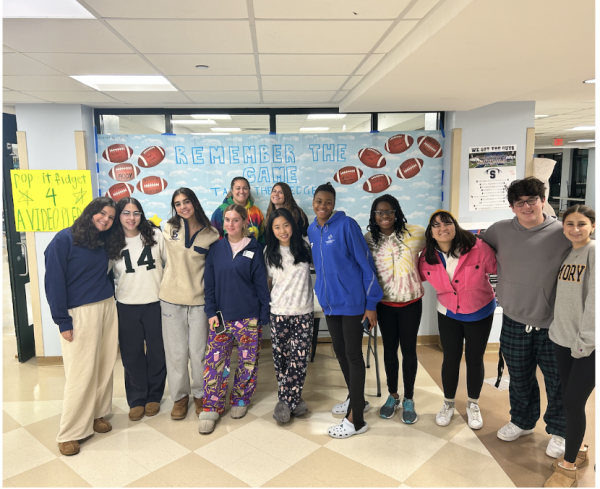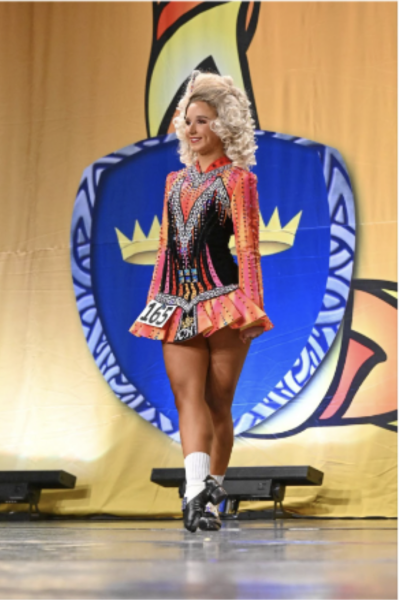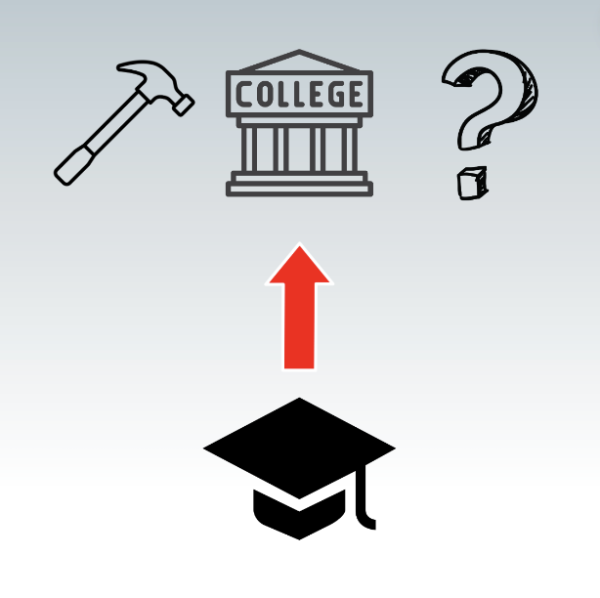Gap-years become increasingly popular amid COVID-19 limitations
After a day of virtual classes and meeting professors online, college students put on their masks and voyage across campus to the closest cafeteria for some grab-and-go food, returning back to their single-bed dorms. For university attendees, a student’s freshman year experience has been nothing but unconventional.
Colleges across the country have made adjustments in attempts to continue their classes, whether it be strictly online courses, half capacity populations or a full return with precautions. Regardless, these safety measures have made the college experience drastically different, and thus many Staples graduates have opted for a gap-year.
According to an Art & Science Group survey conducted in April, 17% of students changed their future college plans due to COVID-19.
“I decided to defer college for a year because I knew that I would not have a normal freshman experience if I went,” Brett Levy ’20 said.
Levy was given the opportunity to take an Academic Leave of Absence and will re-enroll at the University of Pennsylvania as a freshman with the class of 2025 next fall.
“I have been helping students around town with their distance learning, tutoring math and helping [students] with their writing skills,” Levy said. “I am taking online coding courses and plan to travel with my college roommate in the spring if [COVID-19] gets less severe.”
Deferment has been a pattern across many schools. Harvard University reported that 20% of their first-year students opted for a gap year, about three times their usual amount.
Pre-pandemic, high school graduates often opted for a gap-year to get a break from traditional school, gain work experience, pursue certain passions or travel. This year, some students have found it would be wasteful to pay full tuition for an extremely limited experience.
“I didn’t like the plan [Yale had] and wanted a more traditional social and academic experience,” Elorza said. “I didn’t like the plan [Yale had] and wanted a more traditional social and academic experience, — Patricio Perez Elorza ’20
As Staples boys’ soccer captain for the 2019 season, Elorza is working in Westport coaching soccer. A gap-year is allowing him to make some money before he continues his education and focuses on his interests apart from the stress of school courses.
Back in March, college students were abruptly forced to leave campus and return home after an increasing number of COVID-19 outbreaks. Despite safety measures such as the cancellation of college sports, mask-wearing when not in dorm rooms and virtual seminars, the future of universities’ ability to keep campuses open is uncertain.
Consequently, this unpredictability of how college will function next year has caused many current seniors to consider it a possibility.
“I would consider taking a gap-year because COVID has changed the college environment,” Tatiana Bicalho ’21 said. “I would rather take a year to gain personal experience and come back to get an education that is exponentially better than an online class.”

As a writer, lacrosse player and cheerleader, Remy Teltser ’21 has always explored a variety of interests. After taking Intro to Journalism last year,...












































